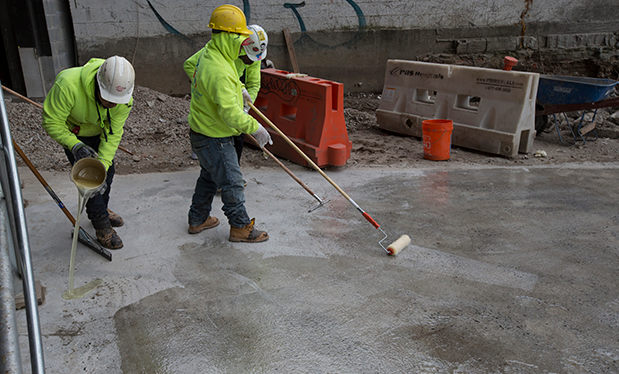
|
On July 9, President Biden issued Executive Order 14036, Promoting Competition in the American Economy, with the intended goal of increasing competition and battling corporate consolidation. The administration is taking aim at railroads and ocean shipping; it says the relatively small number of major players has enabled companies to charge excessive fees. This order, along with 72 provisions, asks the independent Federal Trade Commission to pass rules to limit noncompete agreements and vigorously enforce antitrust laws, particularly on labor markets and the tech sector.
I recently asked Deborah Mazol, NRCA's director of federal affairs, a couple questions regarding this executive order.
What does this mean for the roofing industry?
If meaningful action is taken by the Surface Transportation Board and/or the Federal Maritime Commission in the transportation sector, it could mean transporting materials will become cheaper. Given the difficulty with finding reasonable transportation options for roofing materials, this change could be important and is one we are watching closely. The Department of Justice highlights its antitrust work arguing open competition benefits consumers by ensuring lower prices and new and better products. It is worth noting these executive orders are requests for independent agencies to act. They are not binding. However, Congress has taken a bipartisan interest in updating antitrust laws, and we have seen an interesting coalition come together to fight “big tech” such as Facebook, Google and Twitter. Of course, NRCA is no stranger to following antitrust laws as they apply to our volunteers during NRCA events and meetings.
Similar steps were taken by President Teddy Roosevelt in the early 1900s to break up trusts in the oil and railroad industries and again in the late 1930s when President Franklin D. Roosevelt’s administration ratcheted up antitrust enforcement—increasing more than eight times the number of cases brought in two years.
Opponents of regulations aimed at breaking up big business point to deregulation in the 1970s, which spurred innovation. But the 1970s also brought two recessions, double-digit inflation and a threat to U.S. economic supremacy. The principles President Biden seeks to resuscitate ultimately hurt consumers, workers and the economy overall. Even as a senator, President Biden voted for deregulation of transportation in the airline industry in 1978 and the railroad sector in 1980.
In 1980, Biden stated: “We need to now look beyond airlines and the corrective measures we are voting upon today and recognize the fact that … heavy regulation … is not the answer.”
The executive order encourages the FTC to ban or limit noncompete agreements. Because the FTC operates as an independent agency, the parameters of any regulation restricting noncompete agreements are at its complete discretion and will not be known until or if the FTC promulgates a rule. Historically, regulation of noncompete agreements has been left up to the states and not the federal government. California, North Dakota and Oklahoma currently ban noncompete agreements altogether, and more states prohibit their use with low-wage workers. The Biden administration argues noncompete agreements stifle competition and make it difficult for workers to switch to better-paying options. However, most businesses support the use of noncompete agreements as a vital tool for protecting sensitive company information, investments and trade secrets. In fact, they are widely used in the private sector and common in construction, manufacturing and even fitness instruction.
What will the FTC do and how quickly will it act if at all?
The FTC recently eliminated internal procedures to create rules more quickly to challenge “unfair and deceptive practices”; therefore, the FTC might want to act sooner rather than later. If your roofing company uses noncompete agreements, it is worth reviewing them to ensure they align with current law and are easily defended, particularly by documenting the pro-competitive rationale for the agreements.
NRCA will continue to monitor these developments. Significant executive orders such as this one that touch many aspects of the U.S. economy will take time to put into practice. We will continue to look to our members for advice as we navigate how these changes will affect your business and the roofing industry.



